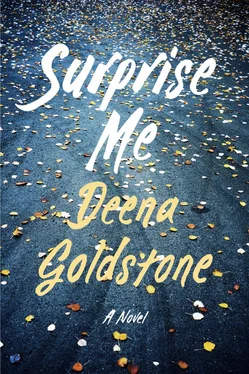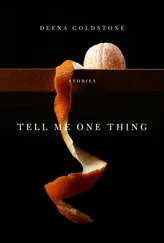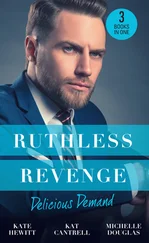“No.”
He takes it from her. “Great cover.”
“That’s not the point!”
Meir turns it over for the authors’ quotes on the back. “Wow, amazing blurbs. You see,” he says to her, as if they are in the middle of the first conversation they ever had, over six years ago, “Jablonski isn’t finished. He just had a little blip, a couple of bad books, but this one sounds like he’s back to his old form.”
“Meir! He stole my life! It’s all here, in the book. I’m there, or Daniel’s take on me, but everything else — what happened between us or what he wished to happen. Okay, it never happened, but he…maybe we…okay, we might have wanted it to, but Meir, he stole my life!”
She’s not making any sense to Meir, but it is very clear that she is consumed by rage. Angry women are not in his wheelhouse — it’s one of the reasons he refuses to see his sister, Fanny. He’ll just wait until the Isabelle he knows and loves resurfaces. He’ll just move away from her, behind the counter, and busy himself with whatever papers he can find there to shuffle. But Isabelle isn’t finished.
She stands on the customer side of the front counter and continues with the same intensity. “He never told me a thing! Never! He’d write me these concerned e-mails and pretend nothing was going on, and all the while this!”
She grabs the book from Meir’s hands and bangs it flat against the wood counter. “This! This! This! This!”
Meir wishes there was a hole he could sink into until she calms down.
But she doesn’t. The rage Isabelle feels, the sense of betrayal, really, doesn’t dissipate in the coming days. In fact, as she seethes, her anger grows. So many things she would shout at Daniel if he were standing in front of her: “You used everything from my heart, everything I am, for your own purposes!” “Didn’t we have this implicit pact of trust?” “How could you, Daniel? How could you?”
And then she does something so uncharacteristic that it scares her a little. She packs up Avi’s clothes and deposits him at Art and Louisa’s with Casey and she gets on a plane to Boston and rents a car and drives to Winnock, New Hampshire, without telling anyone where she is going.
Now, four years into his New Hampshire life, Daniel takes the dog, Alina’s dog, with him when he walks into town in the mornings. She named him Orphan when he showed up at her studio door one winter morning, motherless, a tiny puppy shivering with cold. Daniel suspects that the name has more to do with Alina than with the state of the dog, but he’s never said that to his daughter.
Father and daughter have worked out an arrangement to share the dog, if little else. Orphan ranges freely from Alina’s barn to Daniel’s small cottage, sometimes sleeping with her, sometimes with him, probably getting fed in both places and yet managing to look perpetually skinny and undernourished.
When Orphan’s not with either of them, he roams the woods in search of intoxicating smells to roll in and small game — squirrels, mice, chipmunks, cottontail rabbits — to hunt. And thankfully, he provides the one safe conversational harbor for Daniel and Alina. “I’m taking Orphan into town with me,” Daniel might say as he begins his morning walk to Bev’s Bakery. Or Alina might knock on Daniel’s door after dark, worried because Orphan is MIA. “Is he with you?” she’ll ask.
Sometimes they’ll tromp through the woods behind Daniel’s cottage with twin flashlights, calling the dog’s name until they see him burst through the trees, tail whirling with pleasure, a ball of ecstatic energy that somehow manages to melt the deep freeze between the two humans, at least for that moment.
This October morning, as Daniel and Orphan begin their two-mile walk into town, Daniel can’t help but notice Jesse Eames’s faded red pickup truck parked at a slant, again, in front of Alina’s barn. None of his business, he tells himself, not now, nor when the man and truck started showing up over a year ago. Besides, he likes Jesse, a quiet guy who does what he can to get by — finish carpenter, fine furniture maker, hired hand in the spring and summer when there’s outside work to do. Daniel’s glad, he tells himself, glad that his daughter’s got herself a decent man. And the slightly bitter taste of regret? Only that Alina has never felt the need to mention Jesse to him.
But this is a morning to put all that away. The world is ablaze with reds and oranges and the purest of yellows. The maple and oak trees are burning up with scalding color, the last of their leaves clinging stubbornly to outstretched branches and the rest flooding the road and the forest floor with missives the size of dinner plates.
Of course Daniel knows the leaves are dying, that the trees are going dormant for the winter, that autumn is the ending of things, not the beginning, but the foliage show is so gaudy, so aggressively there, that it is hard for him to believe the deadness of winter is just around the corner.
And Daniel suspects it’s especially hard to believe this year because he feels so much more alive than at any time he can remember. And proud of himself — an emotion he can barely remember ever feeling. For finishing the book. For writing a novel. For honoring Isabelle, as he sees it. For writing something hopeful. Of course he knows that this feeling may well be transitory; the book could be badly reviewed or not at all, it might fail to sell, he may never be able to repeat the experience he had writing it, when the act of creation brought him so much…well, joy. But right now, on this glorious morning with the dog at his side and the world around him exploding with one last burst of showmanship, Daniel is hopeful.
Orphan bounds ahead of him, into the trees and out again, barking at something loudly, probably a fox, then circling back and ambling contentedly alongside Daniel, tail in the air, his gait a steady patter. The sky overhead is the brightest of blues. The air is still chilly this early in the morning, and the pumpkins Daniel passes in Steve Wethering’s pasture have a dusting of frost along their shoulders. Within a week they’ll all be gone, turned into toothy jack-o’-lanterns for Halloween.
When they get to the bakery, Orphan takes his customary place on the sidewalk, directly beneath the large front window, and watches as Daniel goes inside and claims the round table so that man and dog have clear sightlines to each other. That proximity makes each of them feel better.
Daniel plugs in his laptop. Bev brings him a thick white mug of coffee and his customary cinnamon bun. He smiles his thanks as she moves back to the counter and the line of customers waiting patiently for her.
As Daniel opens his e-mail, he vows to himself that today is the day he’ll tell Isabelle about the book. He’s put it off far too long, he knows, but only because he hasn’t figured out exactly how to say what he wants to say. The dedication thanks her, although not by name. He struggled for a long time with what to write, how to acknowledge her, and finally came up with To I. — who inspires and delights, because it’s naked and true. But he fears that one simple sentence is not nearly enough. He wants her to understand that she brought him alive. He hopes that the book will convey that message, but he wants to prepare her for it.
That first day here in Winnock, when he was unpacking his books and found those eight pages of her never-finished novel, they took him back to a time when he felt the first stirrings of hope. The pages were irrefutable evidence that at least then he had had something to offer. Over the course of the semester they’d worked together, Isabelle had found her gift. He has no doubt of that, and he also can admit in the privacy of his own musings that he had something to do with it.
Читать дальше












